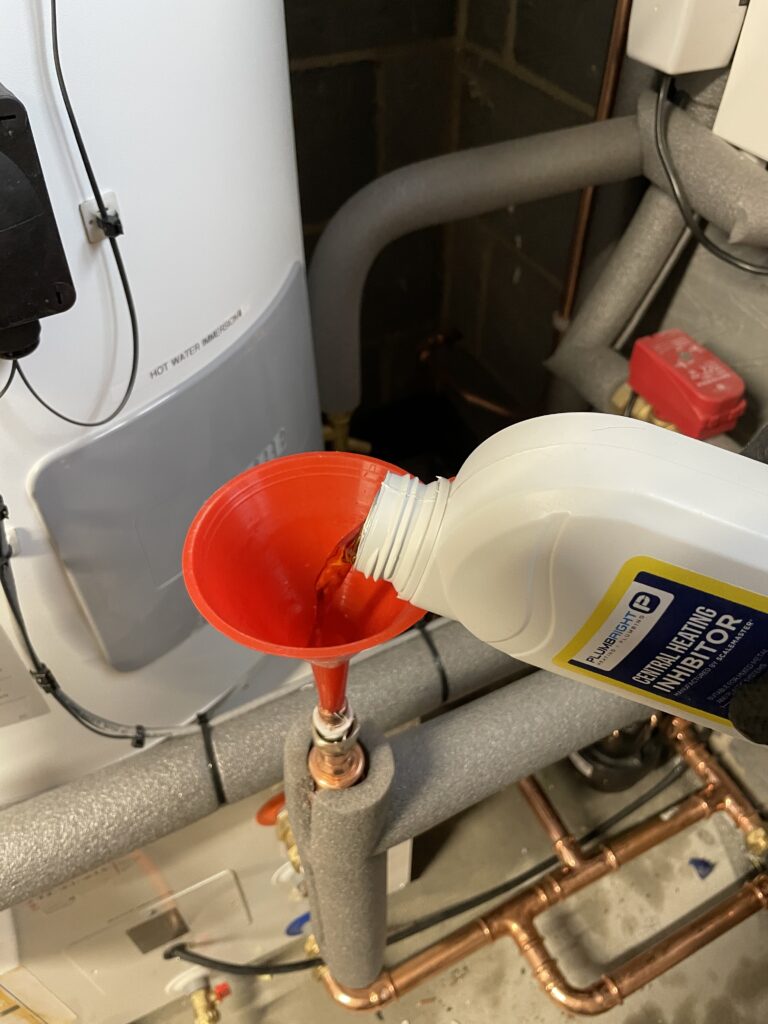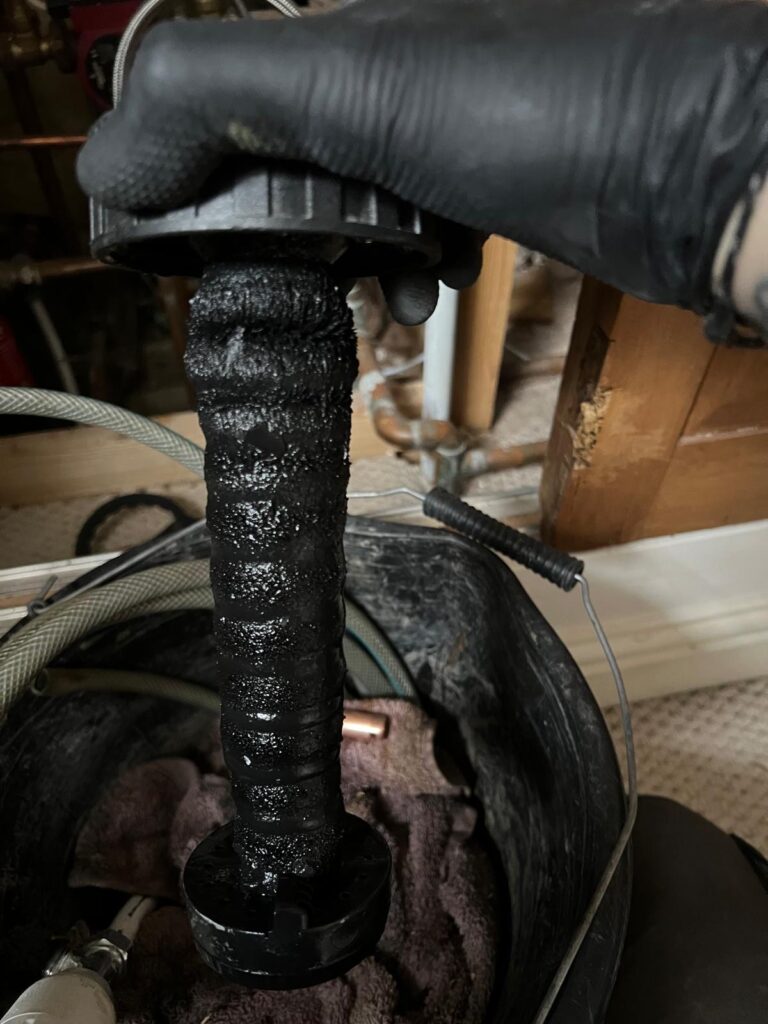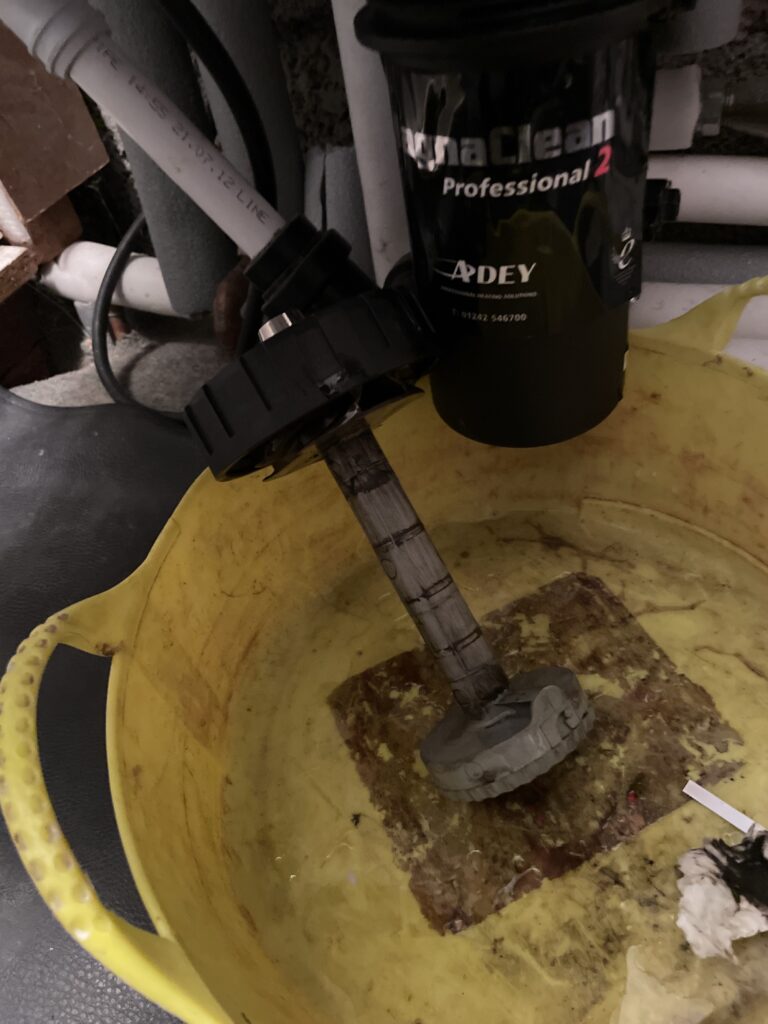Heating System Cleaning: Power Flush vs. Chemical Clean vs. VDI 2035
Is your heating system full of sludge? Learn about power flushing, chemical cleaning, and VDI 2035 pure water treatment to improve efficiency and prevent costly boiler repairs.
Why Heating System Cleanliness Is So Important
Most homeowners never think about the inside of their heating system—until something goes wrong. Over time, rust, limescale, and sludge build up in radiators, pipes, and boilers, reducing efficiency and causing breakdowns.
Common Issues Caused by a Dirty Heating System:
✅ Cold spots in radiators – Sludge blocks heat distribution.
✅ Higher energy bills – Your boiler works harder, wasting fuel.
✅ Boiler damage – Corrosion can lead to expensive repairs.
✅ Noisy pipes & radiators – Trapped air and blockages create strange sounds.
How a Dirty Heating System Gets Overlooked
The biggest problem? You can’t see the issue. Unlike a leaking tap, sludge and scale build up inside your system, unnoticed. Most homeowners only realize there’s a problem when they experience:
🔴 Radiators not heating properly
🔴 Banging, gurgling, or whistling noises
🔴 Boiler cutting out or losing pressure
🔴 Rising heating costs with no clear reason
What’s the Best Way to Clean a Heating System?
There are three main cleaning methods:
1. Power Flush – The Deep Clean
A power flush uses a high-powered pump to force cleaning chemicals and water through the system at high pressure, breaking up and removing sludge.
✔ Best for: Older systems with heavy sludge buildup
✔ Time required: 4–8 hours
✔ Results: Restores heat circulation, reduces breakdown risk
2. Chemical Clean – Regular Maintenance
A chemical clean is a gentler alternative to a power flush, using special cleaning agents to break down sludge over time.
✔ Best for: Newer systems or regular maintenance
✔ Time required: A few hours to a few days
✔ Results: Improves efficiency, prevents long-term damage

3. VDI 2035 / Pure Water Treatment – The Chemical-Free Option
VDI 2035 is a chemical-free approach that replaces regular heating water with ultra-pure, demineralised water. This prevents corrosion and limescale, eliminating the need for inhibitors.
✔ Best for: New or recently cleaned systems
✔ Time required: A few hours
✔ Results: Long-term protection without chemicals
How to Keep Your Heating System Clean & Efficient
To avoid expensive boiler repairs and wasted energy, follow these steps:
✔ Get a system clean every 2–3 years
✔ Install a magnetic filter to trap rust and sludge
✔ Use inhibitor chemicals (unless using VDI 2035)
✔ Consider pure water treatment for long-term protection
✔ Bleed radiators regularly to release trapped air
✔ Book an annual boiler service to check for early sludge problems


Is Your Heating System Due for a Clean?
If your radiators have cold spots, your heating takes longer to warm up, or your energy bills are rising, it might be time for a system flush, chemical clean, or a switch to VDI 2035 pure water treatment.
At J Howden Plumbing & Heating, we help homeowners in Hull and East Yorkshire keep their heating running efficiently. Whether your system needs a power flush, a chemical clean, or a pure water conversion, we’ll get it working like new again.
📞 Contact us today to book your heating system clean and avoid costly breakdowns!